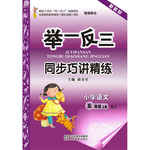题目内容
By the time I left the concert,my ears_________,with complex feelings filling my heart.
A.had rung B.were ringing
C.were to ring D.rang
练习册系列答案
 举一反三同步巧讲精练系列答案
举一反三同步巧讲精练系列答案 口算与应用题卡系列答案
口算与应用题卡系列答案 名师点睛字词句段篇系列答案
名师点睛字词句段篇系列答案
相关题目
题目内容
By the time I left the concert,my ears_________,with complex feelings filling my heart.
A.had rung B.were ringing
C.were to ring D.rang
 举一反三同步巧讲精练系列答案
举一反三同步巧讲精练系列答案 口算与应用题卡系列答案
口算与应用题卡系列答案 名师点睛字词句段篇系列答案
名师点睛字词句段篇系列答案